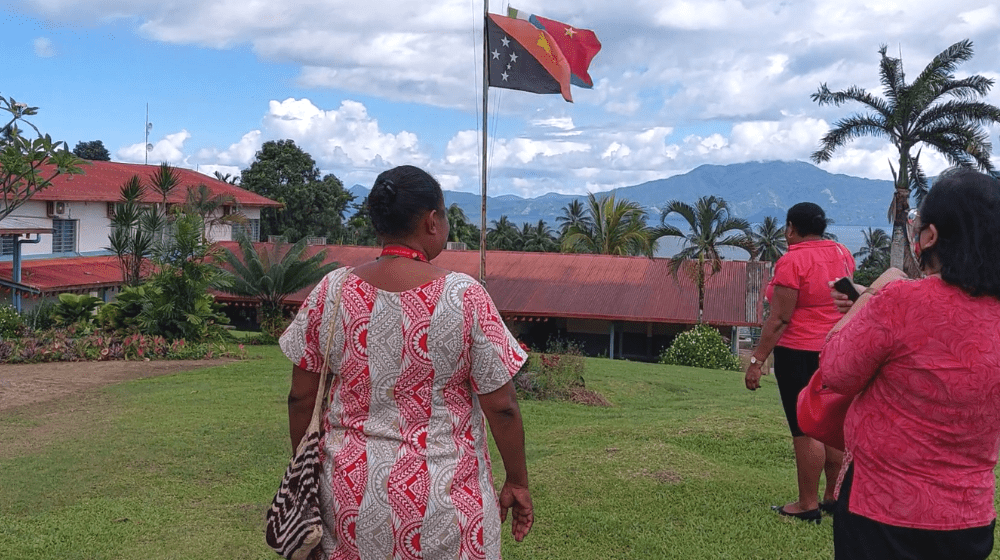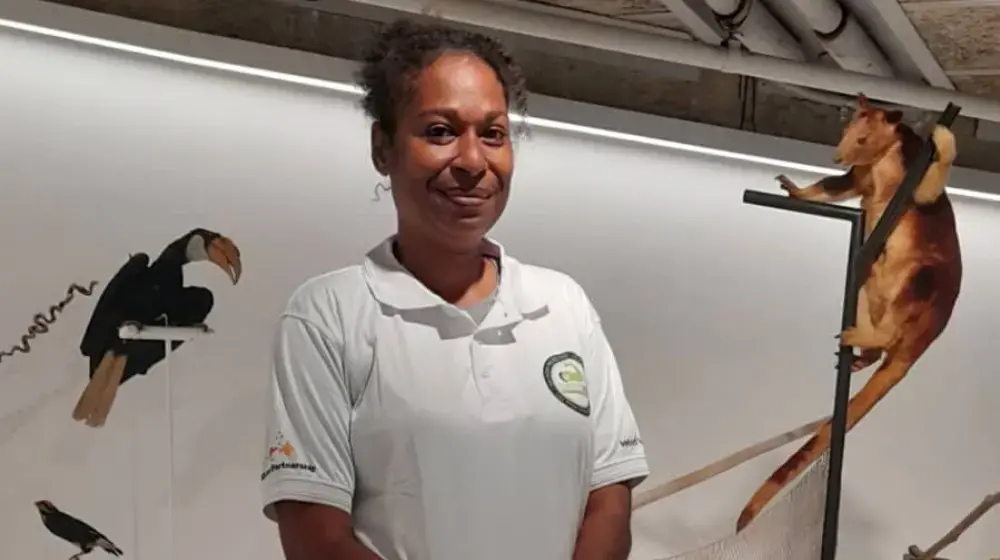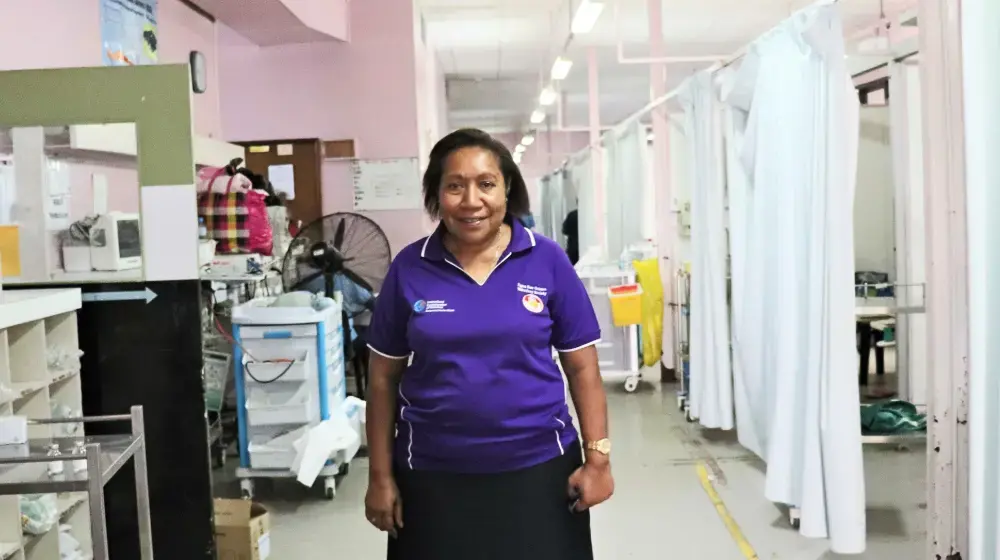Doors on treatment rooms. A toilet for patients. A back door.
The list of features of the newly refurbished Family Support Centre at Alotau Hospital seem modest, reading like a list of the most basic features a structure could have. But for the team at the Centre, something as simple as a door has made a big difference.
That door means a survivor of gender-based or sexual violence is able to receive medical care and discuss their circumstances in private. That confidentiality, essential to providing appropriate and respectful medical care, was not always guaranteed for those who attended the facility before 2022.
Edna Tounokon, Senior Social Worker at the Family Support Centre, shared with us why the small space made caring for patients difficult.
“We had increasing numbers of clients coming to the centre,” said Edna, adding that confidentiality and privacy was a particular challenge. “It was just open and anyone could walk in and out of the building.”
“We also needed a place for survivors who came in late and who needed a place to stay.”
With support from Zonta International, UNFPA supported the team at Alotau Hospital to expand the Family Support Centre, relocating the Centre and refurbishing the facilities.
Edna joined Provincial Health Authority CEO Dr Perista Mamadi and Alotau Provincial Hospital Administrator Dr Dale Frank to share with UNFPA a tour of the new Family Support Centre. Edna works with the various departments of the hospital to refer patients to the health services they need, before offering them support from other partners, including police and safe houses.
When entering the new Family Support Centre, patients are welcomed into a reception space, with brochures on support services and referral pathways on hand.
“We now have a shower and toilet for the clients,” said Edna. “We have a room to see patients in here and it actually has a door. So now we can speak with patients privately and maintain confidentiality.”
The shower and toilet facilities allow the Centre to provide overnight accommodation for patients at risk or who have travelled long distances to reach the Centre and arrived late. The Centre is not designed for accommodating patients long-term as it is not staffed 24/7. However, the new facilities do give the staff flexibility in what they are able to provide and reduce the pressure to provide overnight accommodation in their own homes.
Opposite the patient’s space is another room that is still being furnished.
“This is our playroom,” Edna explained. “When we have children come in, or we have parents who bring their children with them, they can play in here.”
The new space is also a welcome change for the staff of the Centre. They now have office space and toilet and shower facilities. Having these facilities within the Centre is particularly important for those who may be working outside regular hours.
One modest feature of the new centre that is significant for staff is a back door. An additional exit is a welcome safety feature for Edna and her team as the potential for violent interactions in the centre is a persistent concern. Leading to the lower grounds of the hospital, Edna described it as the “escape route”.
The new Centre is not yet complete. Additional equipment and furniture is being added for the team to achieve their vision of a safe space where all those in need of family support services can feel welcome, respected, and safe.
The refurbishment is part of a series of activities implemented with support of Zonta International to strengthen the capacity of health care service providers to deliver quality, respectful care for survivors of gender-based and sexual violence. Health care professionals in Alotau District have participated in training to better understand and provide survivor-centred care. The training includes content on identifying signs of domestic and intimate-partner violence, maintaining patient confidentiality, and connecting survivors with justice, safe house, and psychosocial support services. Most importantly, the training highlights a survivor-centred approach that encourages health care providers to respect the autonomy of survivors.
If you or someone you know is struggling and in need of support, the 1-tok helpim lain is open 24 hours a day, 7 days a week. Call for free from Digicel on 7150 8000.
UNFPA Support to Family Support Centres
Everyone has the right to safe and respectful medical care. By providing best-practice support to survivors of gender-based and sexual violence, health care practitioners can not only effectively treat their patients in that moment, but encourage them seek assistance in the future.
UNFPA, with support from Zonta International, is conducting training for health care practitioners in Milne Bay and Bougainville. This training includes sessions on identifying possible signs of violence and participants work through role plays on how to provide a safe space and start a conversation, with respect to the autonomy of the survivor.





